Sri Lankan president emails resignation letter after fleeing to Singapore
Beleaguered Sri Lankan president Gotabaya Rajapaksa has submitted a letter of resignation after he fled to Singapore following mass protests fueled by an economic crisis and ensuing political turmoil.
Sources said Rajapaksa emailed a letter of resignation to the speaker of the country's parliament late on Thursday. It was not immediately clear if the letter would be accepted in email form.
Rajapaksa, who had promised to resign, escaped to the Maldives early Wednesday morning. According to officials in the Maldives, he boarded a Saudi Airlines flight to Singapore early Thursday afternoon, with his final destination reported to be Saudi Arabia.
A flight believed to be carrying the fleeing President Rajapaksa has landed in Singapore.
Singapore's Foreign Ministry said Rajapaksa had entered the country on a private visit. It said he has not asked for asylum and neither has he been granted asylum.
Parliament speaker Mahinda Yapa Abeywardena on Thursday said he had not yet received a letter of resignation from the president.
According to Sri Lanka's constitution, Rajapaksa's resignation would only be considered official once the speaker of parliament receives a letter of resignation.
The speaker had previously said that parliament would meet to stay on schedule to accept nominations for a new president on Monday of next week, with an election to be held on Wednesday.
Read more:
Sri Lanka in limbo as president yet to resign
Officially, Rajapaksa remains president; but on Wednesday, he appointed Prime Minister Ranil Wickremesinghe as "acting president" with full executive powers, a move that angered the protesters even further as they had been calling for both to resign.
The president , who still has immunity from arrest, stands accused of overseeing corruption and economic mismanagement, which bankrupted the country and triggered the worst financial crisis on record.
Rajapaksa had been a popular figure among Sri Lanka's powerful Sinhala Buddhist majority, who credit him with ending the country's 26-year-long civil war in 2009. However, as the tourism industry, the island-nation's economic mainstay, declined due to the global COVID pandemic, his popularity waned.
The island of 22 million people is struggling with its worst economic crisis since independence in 1948 amid a severe foreign exchange shortage that has limited essential imports of fuel, food, and medicine. Soaring inflation, at a record 54.6% in June and expected to hit 70% in the coming months, has heaped hardship on the population.
The country's leaders are seeking a $3-billion bailout from the US-dominated International Monetary Fund and a restructuring of some foreign debt, but that bid has gone unanswered.
Discontent has worsened in recent weeks as the cash-strapped country stopped receiving fuel shipments, forcing school closures and the rationing of petrol and diesel for essential services.
An interim all-party unity government is expected to take over after Rajapaksa's much-anticipated resignation. Sajith Premadasa, the leader of the largest opposition party Samagi Jana Balawegaya, has said he will put himself forward for president.
The caretaker government is expected to rule for at least six months until the country can afford to hold parliamentary elections.
Palestinians granted only 66 building permits in West Bank over 11 years: Report
Somaliland ready to give US access to its minerals, military bases: Minister
VIDEO | Iran's game changing retaliation boxes- part 1
VIDEO | Iran's game changing retaliation boxes- Part 2
VIDEO | Palestinian widow raises three kids in Gaza as her husband killed by Israel
Palestinian teen killed as raids and settler violence intensify across West Bank
Iran’s layered arsenal primed to deter – and decimate – US warships in Persian Gulf
Iranian commander dismisses US military buildup in West Asia as ‘theatrical gesture’


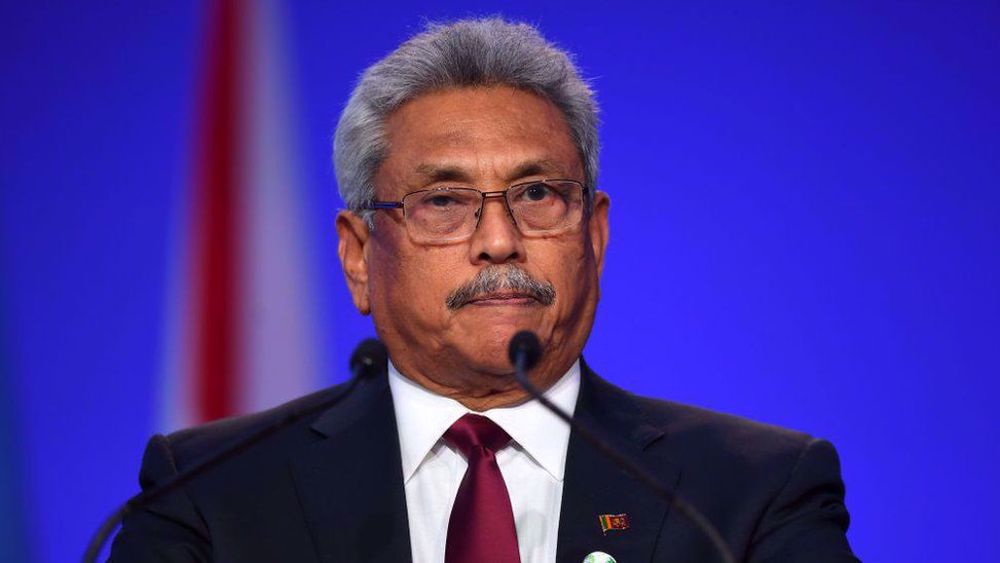
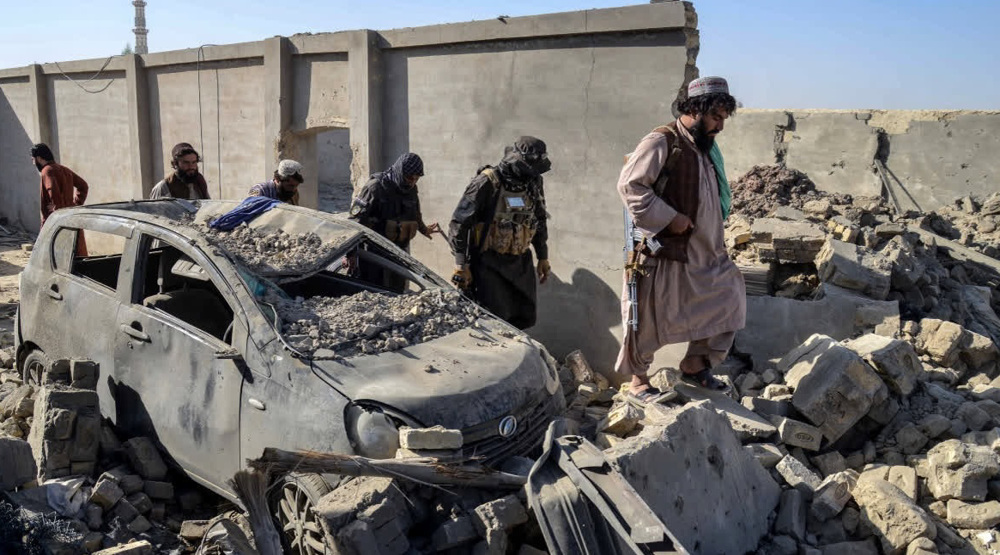
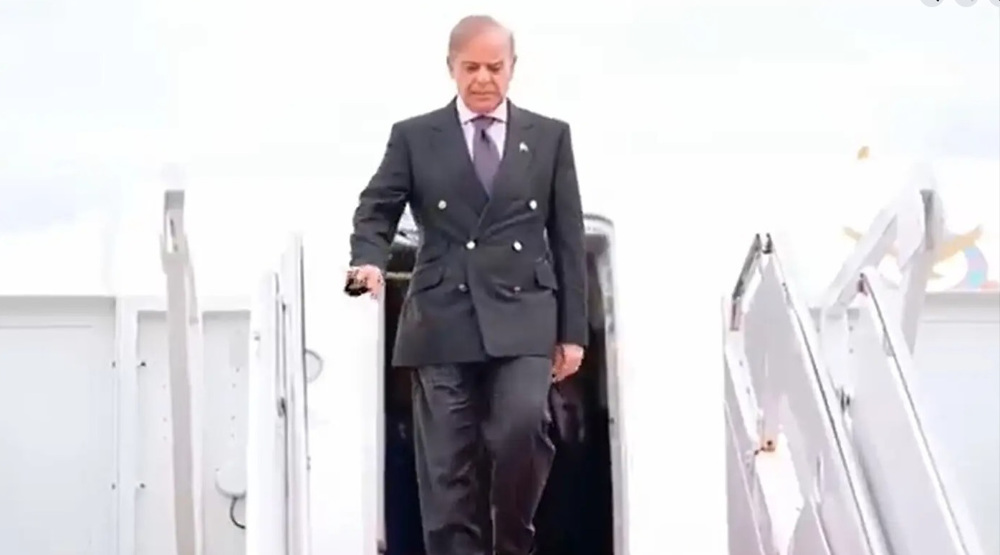
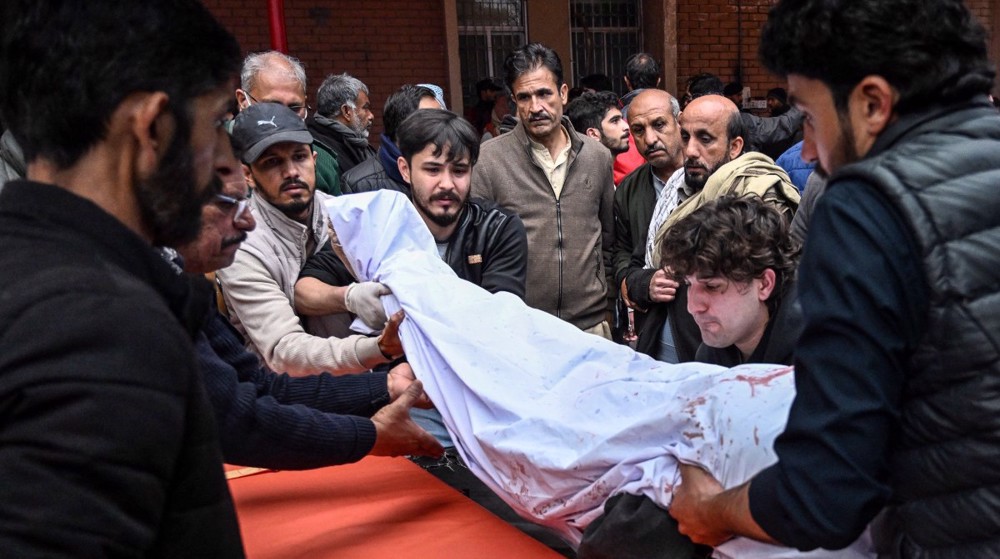



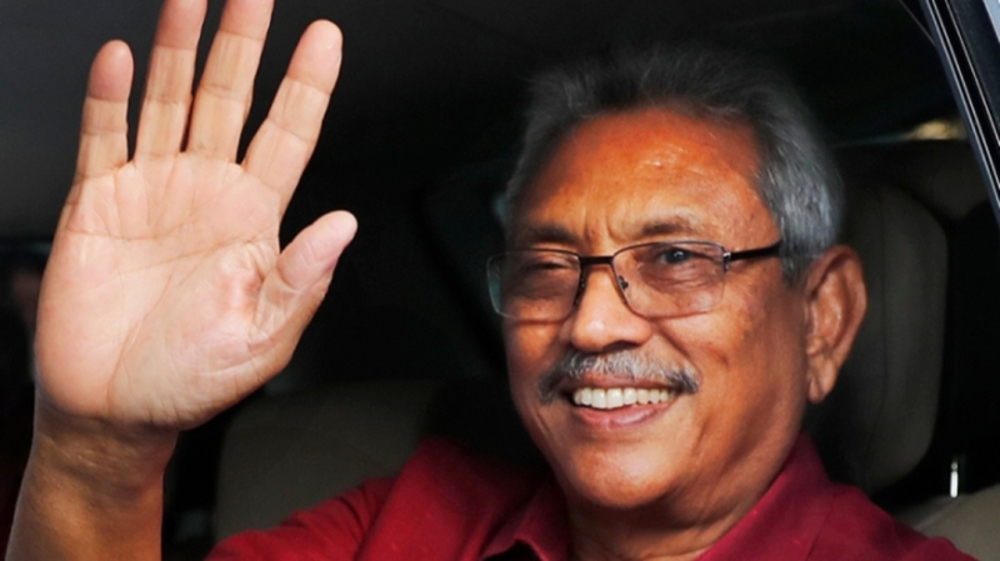
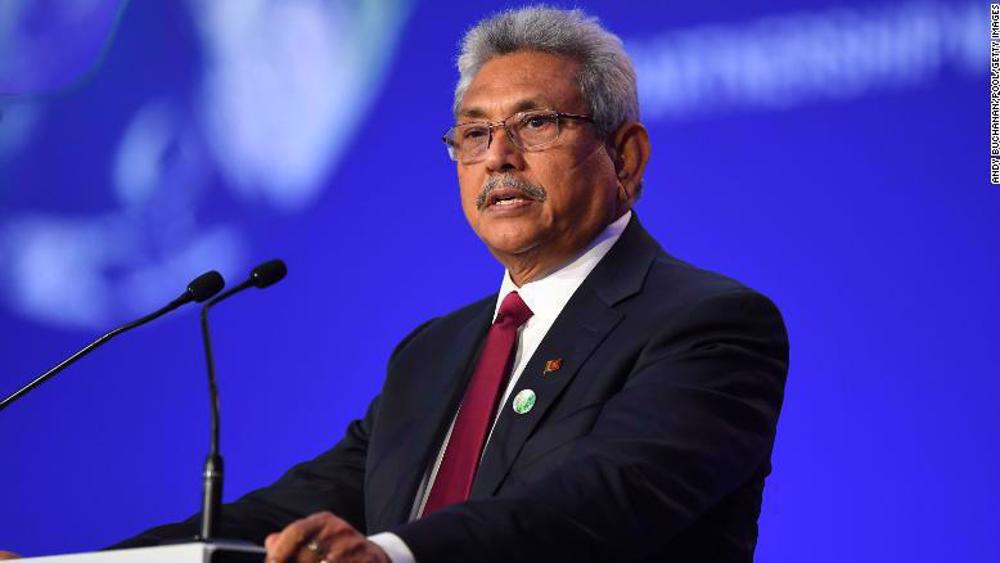
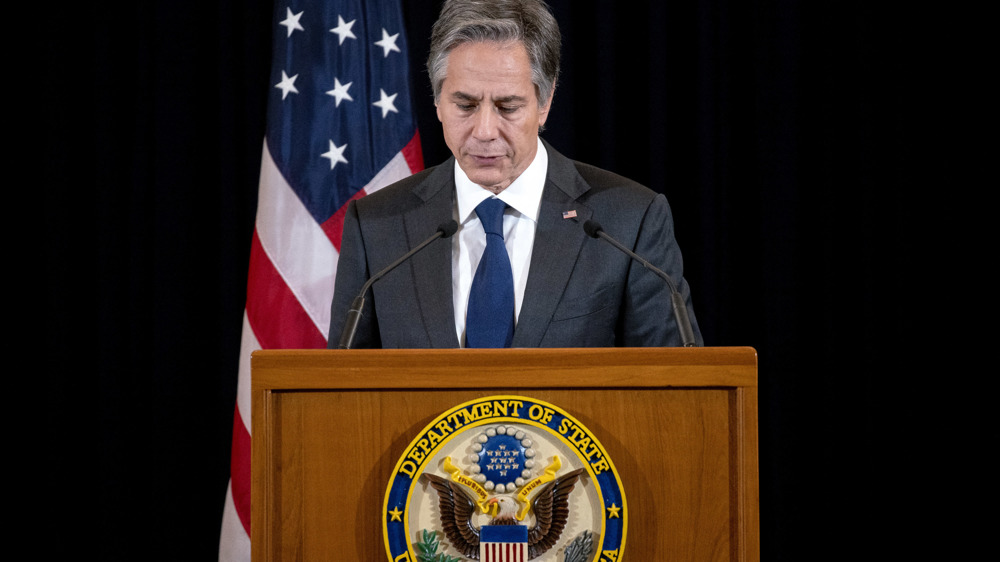
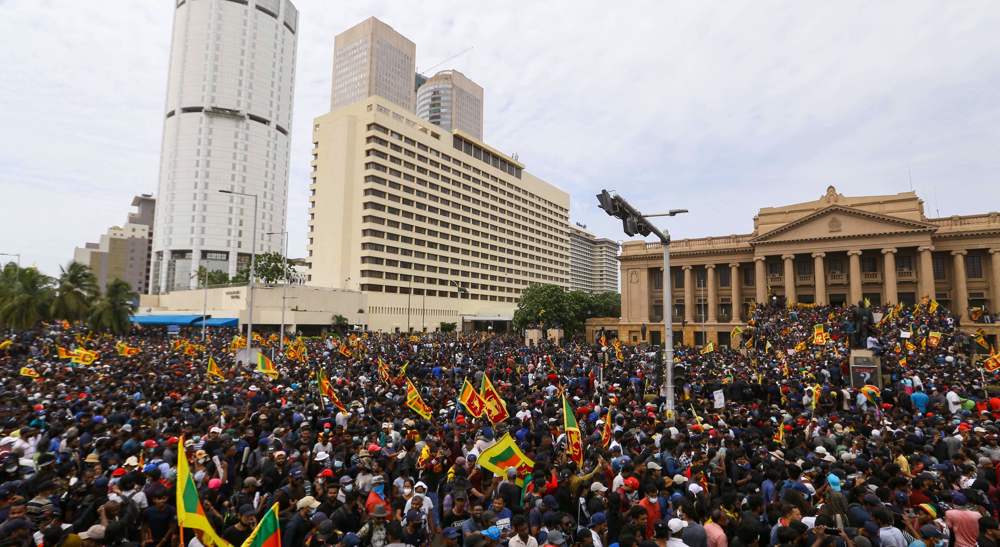
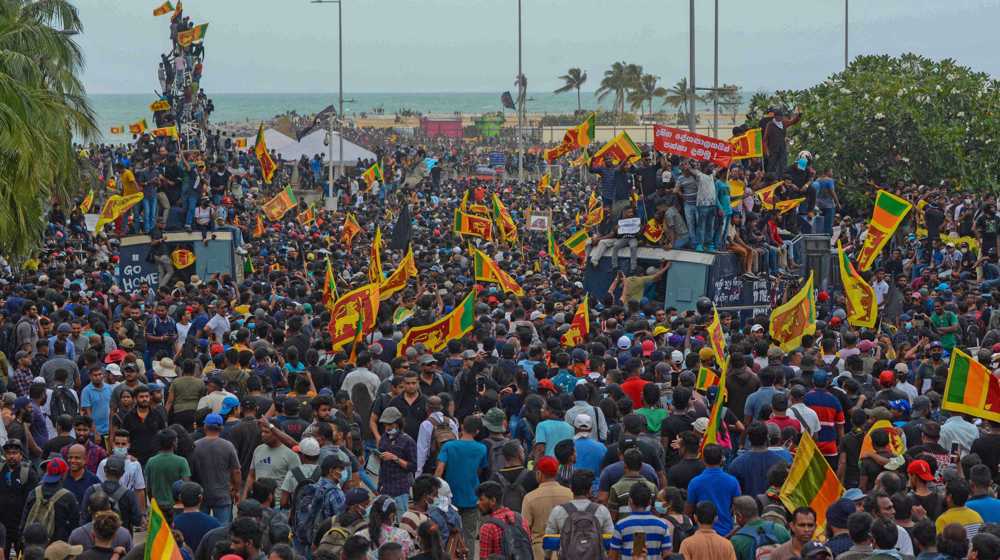
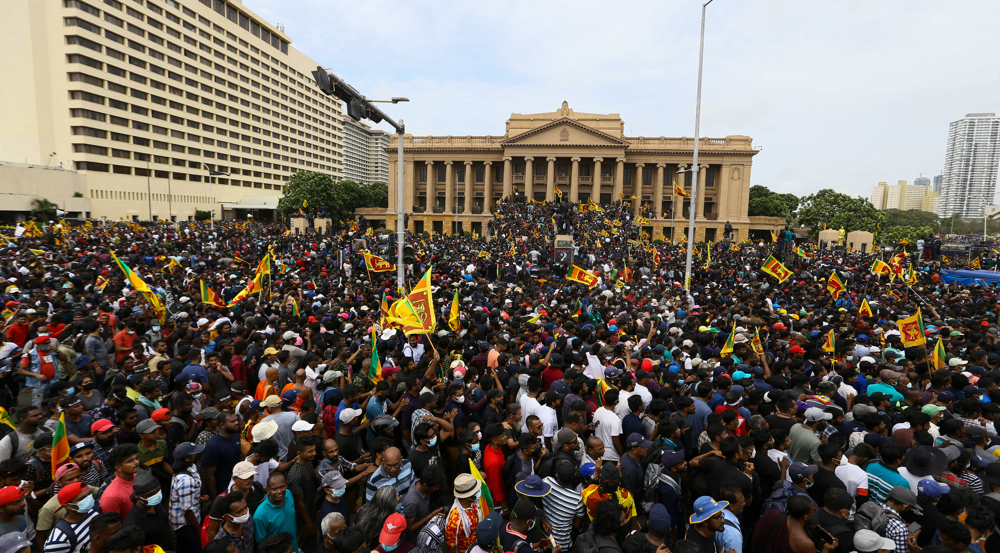
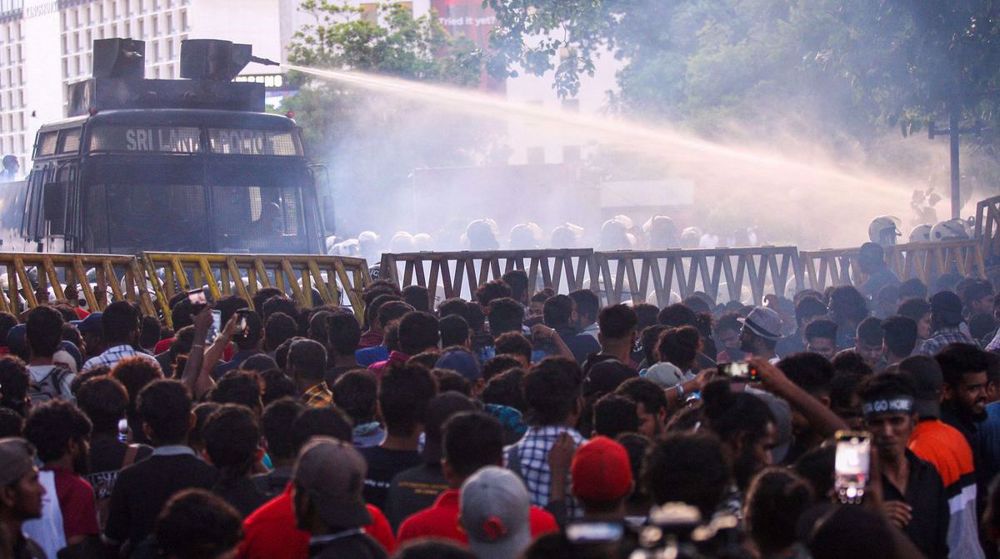
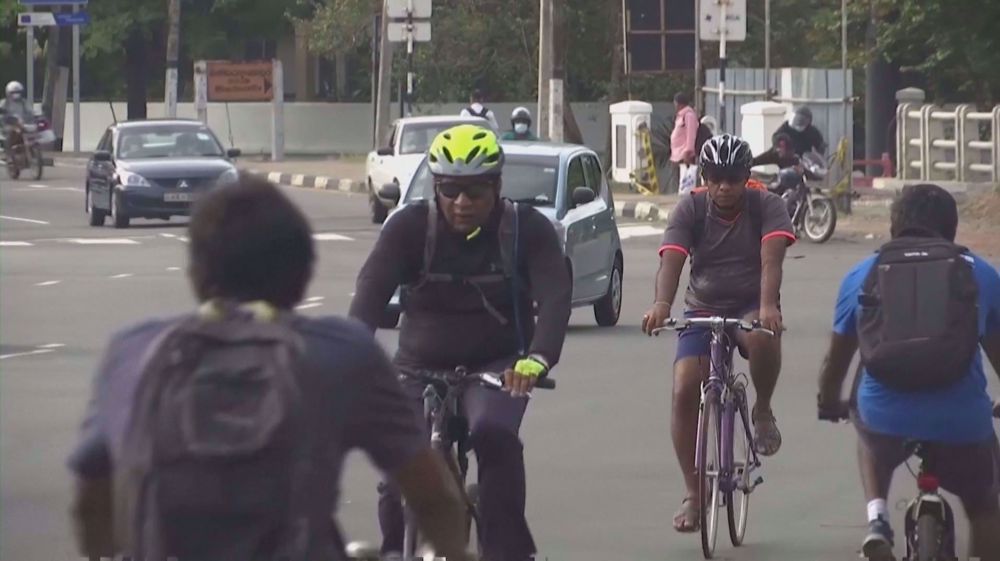
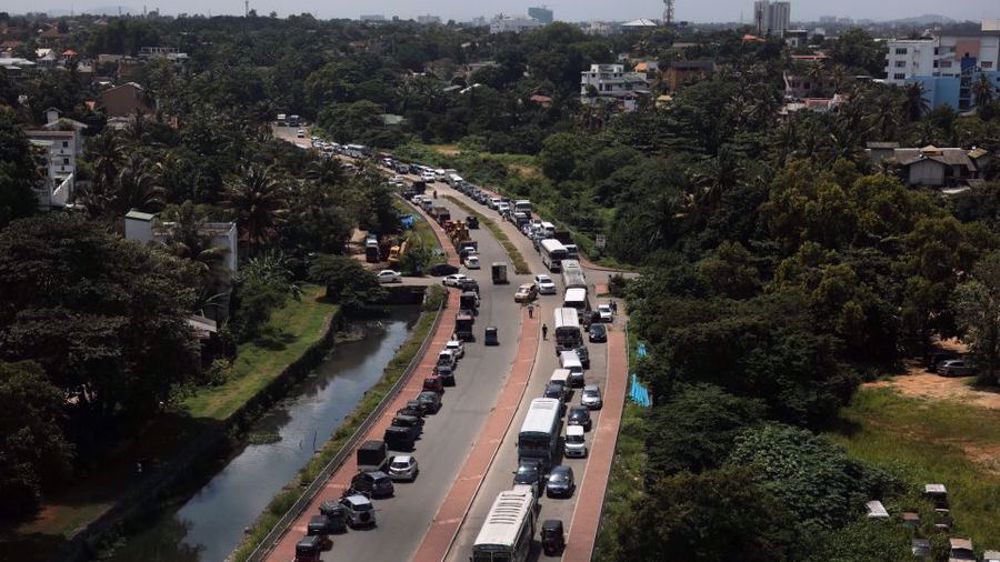
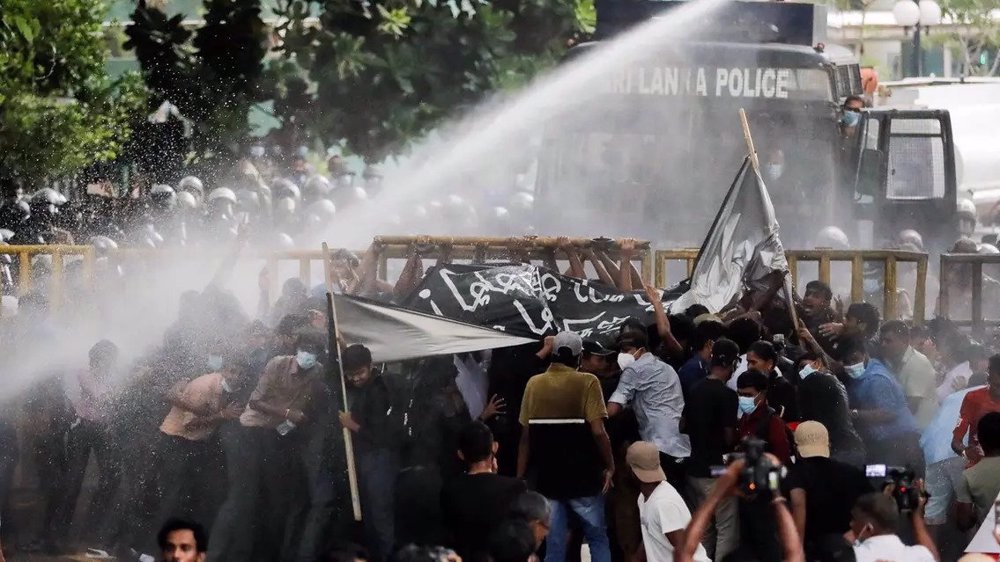

 This makes it easy to access the Press TV website
This makes it easy to access the Press TV website